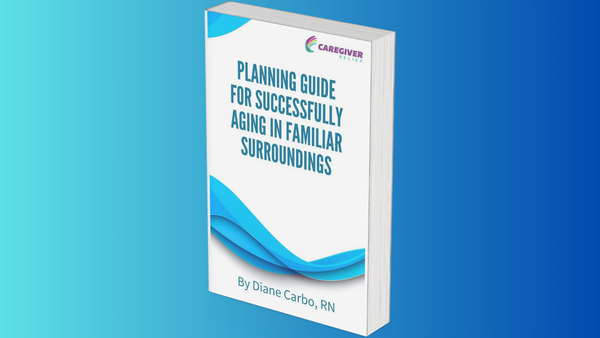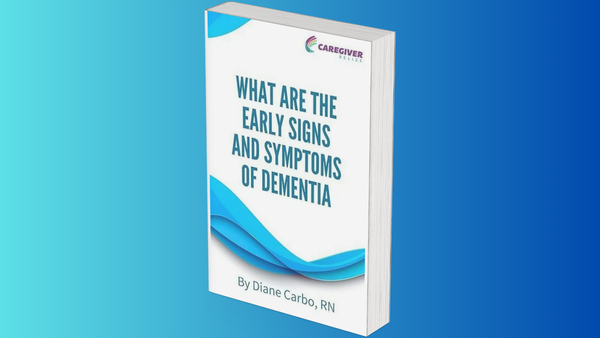How to Deal with Aging Narcissistic Parents
This post provides guidance and support for adult children of narcissistic parents who are dealing with providing care to an aging narcissistic parents.

Caring for an aging narcissistic parent can be a challenging and emotionally draining experience. How to deal with narcissistic parents is a concern for many adult children of narcisstic parents. This blog post aims to provide guidance and support for adult children of narcissistic parents who are dealing with providing care to an aging narcissistic parent. It may be a narcissistic mother. It may be a narcissistic father. You may be an adult child of two narcissistic parents. We'll discuss the impact that adult children of narcisstic parents have had on their child's life. We will discuss the how the parent's behavior has had a long term impact on the adult child's physical and mental health. I will share a caregiver's story about one abusive relationship as a result of parental narcissism. We will also explore the link between narcissism and dementia, and offer tips on navigating this difficult situation.
Understanding Pathological Narcissism:

Narcissistic Personality Disorder (NPD) is characterized by a specific set of impairments in identity, self-direction, and interpersonal relationships. Individuals with Narcissistic Personality Disorder often exhibit traits such as a sense of entitlement, lack of empathy or emotional absence. They have a sense of grandiosity, an over inflated sense of self importance and exhibit manipulative behaviors. It's important to note that narcissistic personality disorder can manifest in different ways and levels of severity. It may also occur with other personality disorders.
Children of Narcissistic Parents :The Story of Star and Her Narcissistic Mother

Let's delve into the story of Star (name changed), a caregiver who faced the challenges of caring for her narcissistic mother, Edith. Edith, coming from a privileged background, had a long history of self-centered behavior and manipulation. Star came from a narcissistic family. Star's caregiving journey spanned over five years, impacting her physical and mental health. She was a single mother of two sons, trying to balance her own life and healthy relationships while feeling obligated to care for her demanding mother.
Edith embodied every trait of a narcissist, making Star's life a constant struggle. Edith refused to contribute financially to the household, believing her money was solely hers. She would sabotage Star's job by calling the police to report abandonment or even showing up at her workplace, causing scenes that led to job loss. Star eventually moved her mother into her home, where Edith's incontinence issues became a source of blame and manipulation. The stress and emotional toll of caring for her narcissistic mother took a severe toll on Star's physical and even mental health effects well-being. Edith has poor boundaries, and no emotional regulation. She was the master of guilt tripping and psychological abuse.
Narcissistic Parenting Traits

We've all encountered difficult people in our lives, but what if one of those challenging individuals happens to be your own parent? The narcissistic parent's behavior can have a profound impact on their children, leaving lasting emotional scars in their adult children. Narcissistic parent signs can vary. Many children raised by narcissistic parents have no idea what healthy relationships entail. Adult children of narcissistic parenting have low self esteem, discount their own feelings and suffer from chronic self blame.
If you suspect that you've grown up with a narcissistic parent, here are some common personality traits to watch out for:
Adult Children of Narcissistic Parents will Observe:
Immaturity: Narcissistic parents often exhibit immature behavior, throwing tantrums and demanding constant attention and validation form other family members. They have an over inflated sense of their own importance.
Selfish Parents : Instead of meeting their child's needs, narcissistic parents view their children as a means to fulfill their own desires and expectations and their own feelings
Aggression/abuse: Narcissistic parents may resort to various forms of abuse, including physical abuse, guilt tripping, verbal and emotional abuse as well as psychological abuse in the form of emotional absence.
Fake apologies: Genuine remorse is rare for narcissistic individuals. If they do apologize, it's often insincere and designed to manipulate.They expect their other family members to take all the blame.
Playing the victim: Narcissistic parents excel at playing the victim, twisting the narrative to suit their own agenda, using negative emotions and using another family member to meet their own needs.
Triangulation: Using manipulation tactics, narcissistic parenting tactics control communication between people to maintain power and control. Children raised with narcissistic mothers or a narcissistic father experience chronic shame and chronic self blame, as their parents destroy their self esteem. A child learns early childhood that the narcissistic parents behavior affects their whole life.
Untrustworthiness: Narcissistic individuals are notorious for lying and failing to take responsibility for their actions. They like to give outsiders a view of the family image that is far beyond the reality of the family dynamics.
Empty promises: When you deal with golden child | a narcissistic parent, they weave a web of lies. Narcissistic parents make promises they have no intention of keeping.
Guilt-tripping: Manipulative narcissistic people use guilt as a tool to coerce obedience from their children, leading to chronic guilt, chronic shame well in adulthood. Children of narcisstic parents learn to put their own needs aside, ignore their own identity, to meet the needs, dreams and expectations of the narcissistic parent,
Using children as trophies: Narcissistic parents often live vicariously through their children, seeking validation and social status through their accomplishments.The family relationships are to meet the goals that the narcissistic parents expect. Children of narcissistic parents have no sense of healthy boundaries, have fragile self esteem and ignore their own needs to meet the needs of their very selfish parents.
Insecurity: Narcissists are deeply insecure, have poor self esteem and seek validation from others or put others down to boost their own ego.
Shaming: Alongside guilt-tripping, toxic shaming damages a child's self esteem-esteem and leads to long-lasting chronic shame-related issues.
Authoritarian structure: Narcissistic parents establish a pyramid of tyranny, with themselves at the top, dominating and controlling those beneath them. It is important to remember that their ultra-confidence lies and need for control can sometimes lead them to encourage the family as a group covertly sows seeds of doubt and confusion in those around them, which can make it difficult to establish boundaries. it is all abe the family image.
If any of these characteristics resonate with your own parental relationship, it's crucial to recognize the impact they can have on your life. The healing process from a narcissistic parent is a journey, but with awareness and professional support, you can break free from their toxic influence and abusive relationship and find your own path to happiness and fulfillment. You are not alone in this struggle, and there are resources available to help you on your journey.
Narcissistic Personality Disorder and its Link to Dementia:


In some cases, narcissistic parents may develop cognitive decline, dementia, or Alzheimer's disease. Research has shown that there may be a link between narcissistic personality disorder and the risk of narcissistic mothers developing dementia. One study suggests that individuals with higher levels of narcissism may be more prone to cognitive decline and increased risk of developing dementia later in life.
The exact mechanisms behind this link are not yet fully understood. It is hypothesized that the stress and chronic activation of the body's stress response system due to narcissistic tendencies and mental disorder may contribute to neuroinflammation and cognitive impairment over time. Additionally, the lack of empathy or emotional absence and emotional connection in narcissistic individuals can impact their relationships, leading to social isolation, which is also a risk factor for dementia.
Can Dementia Cause Narcissism?

Did you know that there may be a link between narcissism and dementia? A new study published in JAMA Psychiatry found that people with narcissistic personality traits are nearly three times as likely to develop dementia as those without. The study looked at data from over 1,600 people over the age of 50 and followed them for 12 years. While more research is needed to confirm the link, these findings add to the growing evidence that personality traits may play a role in the development of dementia. This could have important implications for how we identify and treat the disease. So, if you know someone with a narcissistic personality disorder tendencies, it might be worth keeping an eye on their cognitive health as they age.
Strategies for Dealing with Narcissistic Parents:
Choose your battles wisely:
· Determine what issues are worth confronting and what can be let go to maintain a healthy sense of peace.
Avoid direct confrontation:
· Instead of challenging a narcissistic parent's behavior head-on, focus on achieving your goals by aligning them with their best interests.
Set healthy boundaries:
· Establish clear boundaries and communicate with your narcissistic mother or narcissistic father assertively but empathetically. Protect your own well-being and emotional and mental health first. An adult child feeling guilty or still seeking love and attention set themselves up for failure then they deal with a narcissistic parent honoring those boundaries.
Practice self-care:
· Make self-care a priority, engaging in activities that promote your own well-being and reduce stress.
Conclusion:
Dealing with narcissistic parents, especially as they age, presents unique challenges for caregivers. It's important to understand narcissistic traits, prioritize self-care, set boundaries, and seek support when needed. The link between narcissism and dementia further complicates the caregiving dynamic, emphasizing the importance of managing stress and maintaining one's own well-being. With patience, understanding, and a commitment to your own well-being, you can navigate the complexities of caring for an aging narcissistic parent while protecting your own physical health and mental health.
You might also like this article:











